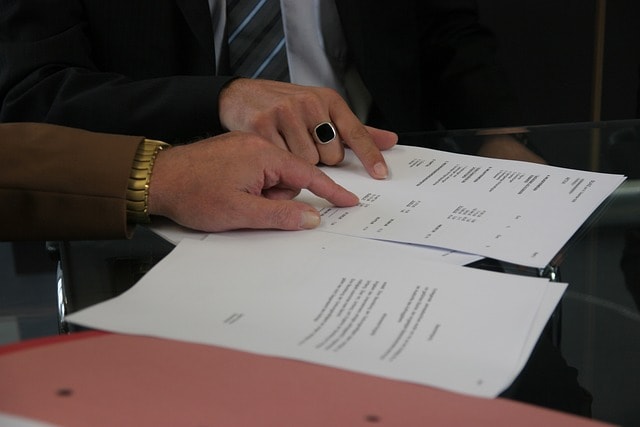Attorneys for Renters: The Guide to Fighting an Unfair Eviction (Before It’s Too Late)

Introduction: Know Your Rights Before It’s Too Late
- Briefly introduce the issue of unfair evictions and how they can disrupt a tenant’s life.
- Emphasize the importance of tenant rights, legal representation, and seeking legal assistance early.
- Mention that landlord tenant disputes are common and that renters have legal protections.
1. Understanding Eviction: When Is It Legal and When Is It Not Under Landlord Tenant Law?

- Define eviction procedures and how they vary by state (California and beyond).
- Explain when a landlord has the legal right to evict a tenant (e.g., nonpayment of rent, lease violations).
- Outline situations where eviction is unlawful, such as when landlords do not follow eviction procedures set by state and local laws, including retaliation, discrimination, and not providing proper notice.
2. Your Lease Agreement and Legal Protections
- Importance of reading and understanding your lease agreement before signing.
- How landlord tenant law protects tenants from wrongful eviction.
- When a rental agreement or lease clause may be illegal or unenforceable.
3. How to Respond to an Eviction Notice and Seek Legal Assistance
- Explain what tenants should do when they receive an eviction or proper notice.
- Importance of keeping records, including itemized lists of payments, security deposit receipts, and landlord communications.
- When to seek legal assistance or contact a landlord tenant attorney.
- Personal Injury: If you have suffered a personal injury due to the landlord’s negligence, such as unsafe living conditions, a personal injury lawyer can help you address these claims effectively.
4. When to Seek Legal Assistance
If you’re a tenant facing issues with your landlord, it’s essential to know when to seek legal assistance. Here are some scenarios where you may need to consult a landlord tenant attorney:
- Eviction Without Proper Notice or Cause: If your landlord is trying to evict you without following the proper notice procedures or without a valid reason, it’s crucial to seek legal assistance immediately. A landlord tenant attorney can help you understand your rights and challenge the eviction.
- Refusal to Make Necessary Repairs: Landlords are required to maintain the rental property in a habitable condition. If your landlord is neglecting necessary repairs, a tenant lawyer can advise you on how to proceed and ensure your living conditions are up to standard.
- Discrimination: If you believe you are being discriminated against based on race, gender, age, or other protected characteristics, it’s important to consult with a landlord tenant attorney. They can help you file a complaint and take legal action if necessary.
- Security Deposit Issues: Disputes over security deposits are common. If your landlord is unfairly withholding your deposit, a tenant lawyer can help you recover the funds.
- Retaliation: If your landlord is retaliating against you for exercising your tenant rights, such as reporting a code violation or joining a tenant union, legal assistance can help protect you from unlawful actions.
In these situations, seeking legal assistance can help you understand your rights and options. A landlord tenant attorney can provide guidance on how to navigate the situation and represent you in court if necessary.
5. Finding the Right Landlord Tenant Attorney
Finding the right landlord tenant attorney can be a daunting task, but here are some tips to help you get started:
- Experience in Landlord Tenant Law: Look for an attorney who specializes in landlord tenant law and has a proven track record in handling similar cases. Their expertise will be invaluable in navigating the complexities of your situation.
- Online Reviews and Referrals: Check online reviews and ask for referrals from friends or family members who have had similar experiences. Personal recommendations can provide insight into an attorney’s effectiveness and approach.
- Free Consultation: Many attorneys offer a free consultation to discuss your case. Use this opportunity to gauge their understanding of your situation and their proposed strategy.
- Familiarity with Local Laws: Ensure the attorney is well-versed in local laws and regulations, as landlord tenant laws can vary significantly by state and municipality.
- Fee Arrangements: Consider attorneys who offer flat fee or contingency fee arrangements. This can make legal representation more affordable and ensure you know what to expect financially.
By doing your research and finding the right attorney, you can ensure that you receive the best possible representation and achieve a favorable outcome in your case.
6. Preparing for a Consultation with a Tenant Lawyer
Before meeting with a tenant lawyer, it’s essential to prepare by gathering relevant documents and information. Here are some things to bring to your consultation:
- Lease Agreement: A copy of your lease agreement is crucial as it outlines the terms and conditions of your tenancy. Your attorney will need to review this document to understand your rights and obligations.
- Correspondence with Your Landlord: Bring any emails, letters, or other communications with your landlord. This can provide evidence of your interactions and any issues that have arisen.
- Photos or Videos: If there are any damages or issues with the rental property, photos or videos can serve as visual evidence to support your case.
- Records of Rent Payments and Security Deposits: Keep detailed records of all rent payments and any security deposits made. This documentation can help resolve disputes over payments and deposits.
- List of Questions and Concerns: Prepare a list of questions and concerns you have about your case. This will ensure you cover all important points during your consultation and get the information you need.
By being prepared, you can make the most of your consultation and ensure that your attorney has all the information they need to provide effective representation.
4. Fighting an Eviction in Court
- What happens if the dispute escalates to court (litigation, tenant defenses, etc.).
- How tenant lawyers can help protect renters in landlord tenant matters.
- Understanding the role of legal representation and how to access free consultation services.
5. Alternative Solutions and Tenant Rights Advocacy
- How to negotiate with a landlord for a fair resolution.
- Creative solutions such as mediation instead of court disputes.
- Resources for renters, including housing assistance and tenant advocacy programs.
9. After the Eviction: Next Steps
If you’ve been evicted, it’s essential to take immediate action to protect your rights and interests. Here are some next steps to consider:
- Review the Eviction Notice: Carefully review the eviction notice to ensure it was served properly and complies with local laws. Any discrepancies can be grounds for challenging the eviction.
- Seek Legal Assistance: Contact a landlord tenant attorney to discuss your options. They can help you file an appeal or motion to stay the eviction if necessary.
- File an Appeal or Motion: If you believe the eviction was unjust, you may be able to file an appeal or motion to stay the eviction. Your attorney can guide you through this process.
- Arrange Alternative Housing: Start looking for alternative housing as soon as possible. This can help minimize the disruption to your life and ensure you have a place to stay.
- File a Complaint: Consider filing a complaint with local housing authorities or seeking assistance from a tenant advocacy organization. They can provide additional support and resources.
By taking these steps, you can minimize the impact of the eviction and work towards finding a resolution that works for you.
6. Protecting Yourself From Future Eviction Issues
- Tips on maintaining a strong rental property history.
- Ensuring all agreements, including insurance coverage and necessary repairs, are documented.
- When to seek legal help early to prevent landlord issues.
Conclusion: Know Your Rights, Protect Your Home
- Reiterate the importance of knowing tenants rights and when to seek legal assistance.
- Encourage renters to stay informed on landlord tenant law and take action against wrongful evictions.
- Offer a call to action: “If you’re facing eviction, contact a tenant lawyer for a free consultation today.”
related Terms: renters rights, normal wear, residential, circumstances, advocate













